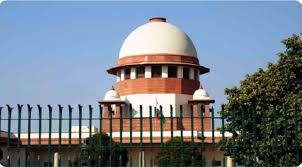Filed by the appellant against judgment dated 15.11.2008 in GIA Case No.39 of 2005 of the State Education Tribunal, Orissa (hereinafter referred to as the “Tribunal”) directing the Respondents No.1 & 2 to approve the appointment of Respondent No.5 on the post of Physical Education Trainer (hereinafter referred to as “PET”) in the Gram Panchayat School, Sailo at Nadhana (hereinafter referred to as the “School”), District Puri and release of block grant in his favour with effect from[Hereinafter shortened and referred to as “w.e.f.”] 01.01.2004, has been dismissed. (Para 3)
Approving the appointment of teaching and non-teaching staff, where the name of appellant found place and he was held entitled to receive the Block Grant. (Para 4)
This led to Respondent No.5 filing GIA Case No.39 of 2005 under Section 24-B of the Orissa Education Act, 1969 challenging the approval order of the appellant before the Tribunal. The Respondent No.5 claimed to be continuing as the PET in the school in question w.e.f. 10.01.1993 on the basis of Resolution dated 07.01.1993 issued by the Managing Committee constituted on 28.12.1992. The Tribunal vide judgment dated 15.11.2008 quashed the order dated 02.04.2005 by which approval was given to the service of the appellant and further directed approval of the appointment of Respondent No.5 and for release of block grant in his favour w.e.f. 01.01.2004. The challenge by the instant appellant to the same before the High Court came to be rejected by the Impugned Judgment. (Para 5)
On the factual scenario, the appellant was appointed by the Managing Committee constituted on 15.12.1992 and given appointment on 14.05.1994 during the time when a stay order granted by the High Court in favour of the Managing Committee constituted on 15.12.1992 was continuing i.e., since 11.01.1993. Thus, the appointment made by the said Managing Committee (constituted on 15.12.1992) of the appellant cannot be labelled illegal per se nor termed void ab initio. (Para 15)
Thus, in the absence of the post being vacant on 07.01.1993, the appointment of Respondent No.5 on the said single post held by Mr. Kapil Sasmal, Respondent No.5 could not have been appointed by way of the resolution dated 07.01.1993 followed by the appointment letter, which came to be issued on 10.01.1993. (Para 15)
It is also noted that the Respondent No.5, for the first time, raised the issue before the Tribunal challenging the approval order dated 02.04.2005 of the appellant on the basis of resolution dated 07.01.1993 of the Managing Committee constituted on 28.12.1992. In the period of over 12 years (from 07.01.1993 to 04.05.2005), Respondent No.5 had not moved before any forum, be it a Court of Law or a Tribunal or an Authority asserting his claims qua the solitary post of PET in the School in question. (Para 16)
Further, there was no complaint before any authority, either with regard to the appellant not joining or discharging his duty or the Respondent No.5 being prevented from joining or discharging his duty, from any quarter, much less, Respondent No.5 himself, till 2005. Even with regard to the finding of Respondent No.5 having worked in another school during the period in question, such finding has not really been contested. In any event, the material sought to disprove such factual assertion is not quite forthcoming from the record. (Para 17)
On an overall circumspection, thus, in the present case the Respondent No.5 should have been non-suited on the ground of delay and laches, which especially in service matters, has been held consistently to be vital, juxtaposed with the sign of acquiescence. To the mix, we add that the State has supported the factual circumstances concerning the appointment of the appellant, his continuance in service as also the Respondent No.5 having worked during the said period in another school viz. the Sri Thakur Nigamananda High School, Terundia. Notably, the Respondent No.5 does not, from the record before us, appear to have approached the authorities in the interregnum. (Para 20)
We have already discussed the relationship between acquiescence on the one hand and delay and laches on the other. (Para 21(24))
Laches unlike limitation is flexible. However, both limitation and laches destroy the remedy but not the right. Laches like acquiescence is based upon equitable considerations, but laches unlike acquiescence imports even simple passivity. On the other hand, acquiescence implies active assent and is based upon the rule of estoppel in pais. As a form of estoppel, it bars a party afterwards from complaining of the violation of the right. Even indirect acquiescence implies almost active consent, which is not to be inferred by mere silence or inaction which is involved in laches. Acquiescence in this manner is quite distinct from delay. Acquiescence virtually destroys the right of the person. (Para 21(40))
The appellant is held entitled to continuance on the post of PET in the School, with service counted from 14.05.1994. As a sequel thereto, all consequential benefits, to be determined as per records, shall flow. (Para 23)
However, for complete justice, we cannot leave Respondent No.5 in the lurch, given the time taken by the adjudicatory process. As such, in exercise of power under Article 142 of the Constitution of India, we direct the State of Odisha to grant a lump-sum of INR 3 lakhs to Respondent No.5. Further, if any monies were paid to Respondent No.5, the same shall also not be recovered. This paragraph shall not constitute precedent. (Para 25)
SUPREME COURT OF INDIA
2023 STPL(Web) 334 SC
[2023 INSC 902]
Bichitrananda Behera Vs. State Of Orissa And Others
Civil appeal no. 6664 of 2023 (@ special leave petition (civil) NO.16238 of 2017)-Decided on 11-10-2023
https://stpllaw.in/wp-content/uploads/2023/10/2023-STPLWeb-334-SC.pdf







